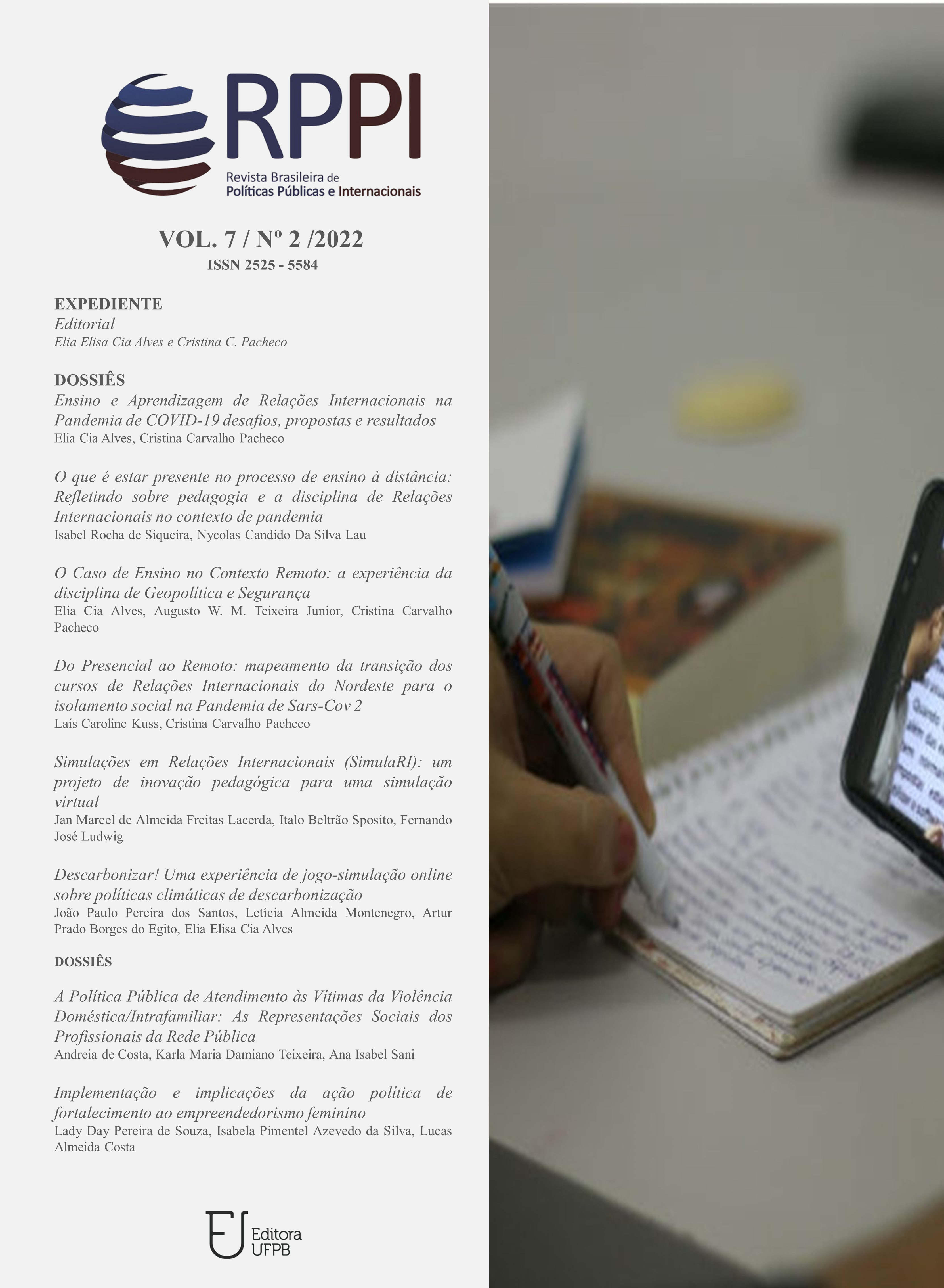Simulações em Relações Internacionais (SimulaRI)
um projeto de inovação pedagógica para uma simulação virtual
DOI:
https://doi.org/10.22478/ufpb.2525-5584.2022v7n2.61171Keywords:
Simulação, Organizações Internacionais, Relações Internacionais, Aprendizagem ativa, Projeto de Inovação PedagógicaAbstract
Simulations and models are an effective educational tool as an alternative to the typical classroom practice, thereby improving the teaching and learning process by providing a fuller experience on the study subject. This article discusses a pedagogical innovation teaching project that attempts to incorporate simulation into the International Relations course and its disciplines to instruct fellow monitors and volunteers on how to structure a simulation model for International Organizations. Due to the Covid-19 pandemic, this active learning instrument is structured using virtual technologies. The results of the evaluation and monitoring of those involved in the project were analyzed according to the project's contributions to the improvement of learning of International Relations concepts and theories and the establishment of a bonding network between teaching, research, and extension within the course. The evaluations suggested that participants viewed the instrument positively, stating that it aided in the teaching-learning process, increased involvement with course activities, and decreased dropout prospects.
Downloads
Downloads
Published
Issue
Section
License
Copyright (c) 2022 Jan Marcel de Almeida Freitas Lacerda, Italo Beltrão Sposito, Fernando José Ludwig

This work is licensed under a Creative Commons Attribution 4.0 International License.
Autores que publicam nesta revista concordam com os seguintes termos:- Autores mantém os direitos autorais e concedem à revista o direito de primeira publicação, com o trabalho simultaneamente licenciado sob a Licença Creative Commons Attribution que permite o compartilhamento do trabalho com reconhecimento da autoria e publicação inicial nesta revista.
- Autores têm autorização para assumir contratos adicionais separadamente, para distribuição não-exclusiva da versão do trabalho publicada nesta revista (ex.: publicar em repositório institucional ou como capítulo de livro), com reconhecimento de autoria e publicação inicial nesta revista.
- Autores têm permissão e são estimulados a publicar e distribuir seu trabalho online (ex.: em repositórios institucionais ou na sua página pessoal) a qualquer ponto antes ou durante o processo editorial, já que isso pode gerar alterações produtivas, bem como aumentar o impacto e a citação do trabalho publicado (Veja O Efeito do Acesso Livre).




_.jpg)






.png)


.jpg)
_.png)
